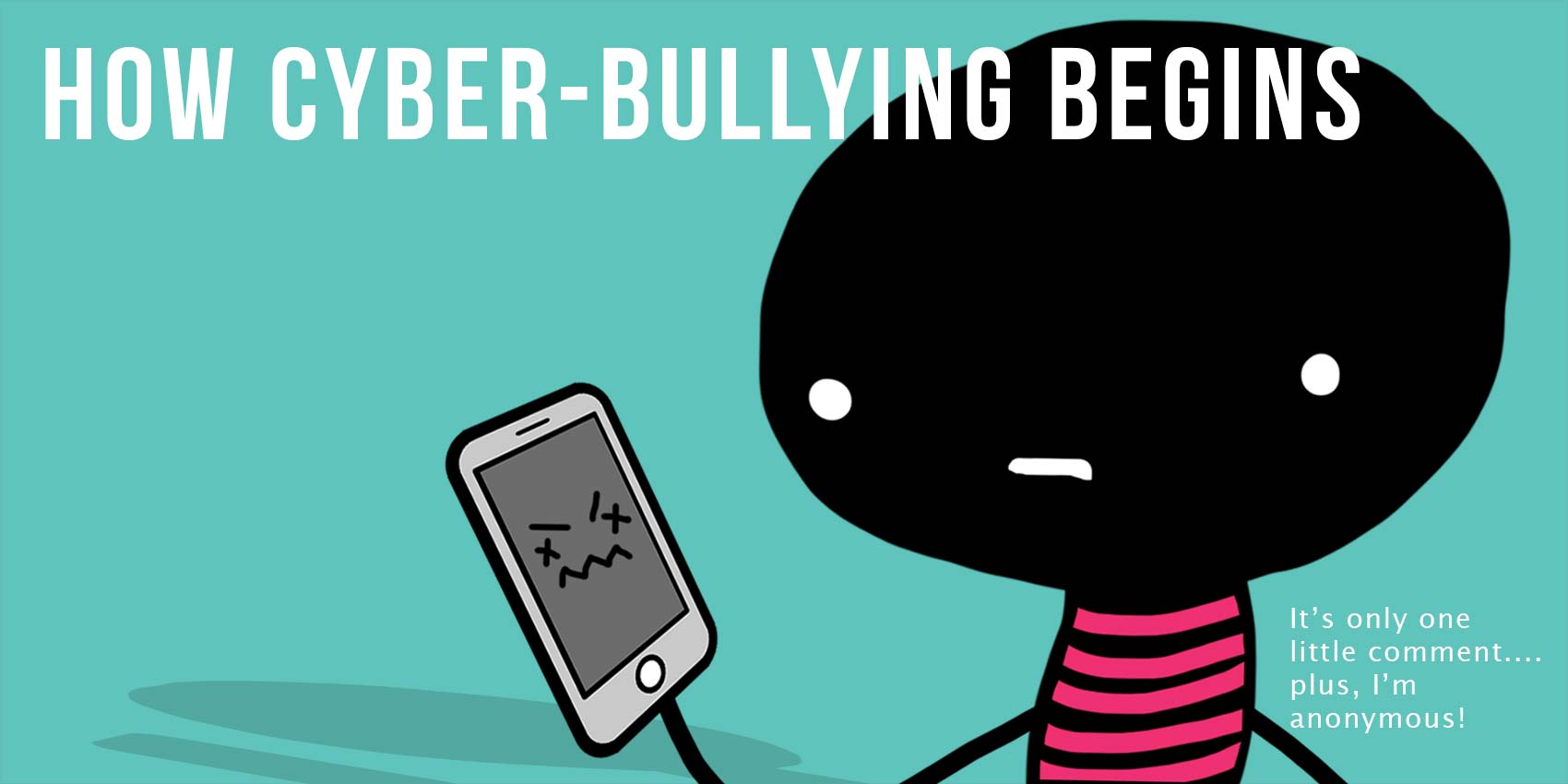15 Sep How cyber-bullying begins

Why is cyber bullying such a growing problem? Below are just a few factors that have contributed to the rise in cyber-bullying.
1. We feel anonymous when we are in front of a computer screen. We do not have to look into anyone’s eyes or read their body language when we are typing. All the components that would normally make us feel emotionally connected to a person are not available when we are in front of a computer or texting. As a result, people are more likely to say/type things that they would normally not.
IN A TEXT:
Dude, did you see Greg mess up the winning shot? What a freak show. He has to hate himself, it was so bad.
IN PERSON to the same person you would have texted above:
Can’t believe Greg missed the winning shot- he always makes those! Totally sucks, but at least Greg tried. I bet he feels awful.
Which scenario would make Greg feel better about himself if he ever heard or read about it? What are the chances the text could be forwarded and eventually Greg see it?
2. Texting and typing are so casual that people don’t think about what they are saying. Most people write many emails and texts everyday. In many ways, it is a very “mindless” form of communication and therefore, people tend to be less mindful of what they say.
TEXT SENT:
Hey Kalli, did I just send you that email about Phil and his stupid girlfriend or did I accidentally send it to his stupid girlfriend, cuz she’s my lab partner and I need to text her about homework?
REPLY RECEIVED:
Uh, I don’t know who Kalli is, but you can go find yourself a new lab partner. This is Kendra, Phil’s stupid girlfriend. Who’s stupid now, Amy?
Have you ever felt like Amy? How can you avoid those texting nightmares?
Have you ever felt like Kendra? How do you respond?
3. People feel safe in their homes. They are surrounded not only by their walls but by things that are comforting to them. As a result, they often feel empowered to act more boldly than they would otherwise.
REMEMBER:
Behind the screen names, the avatars and the profiles are REAL people.
4. PEER PRESSURE! Let’s illustrate with a true story. We love true stories.
A boy invited some football teammates over to his house after the game for some dinner. They went up to the “playroom” and while they were all hanging out, one boy went on the home computer, hacked into their school’s computer system and, using another boy’s email instead of their own, sent several emails to the head of the school, the school counselor and a few girls at the school. The emails to the girl classmates were highly inappropriate.
The one boy started the whole thing on his own, but when others saw what he was doing, and that he actually had gotten into the school’s system, they were fascinated. Most of them started laughing and commenting on how “wild” it was to be in the system. They joined in on creating the emails, each one offering more and more inappropriate ideas.
However, at one point, the boy whose house this was tried very hard to stop the hacker. He even turned off the computer, but the hacker turned it back on and continued. The other boys told the one boy not to be such a “wuss.”
On Monday morning, the school called the house. All the boys were “caught” and punished.
So, do you think peer pressure was a factor here? Would this hacker have done all of this if he had been alone? Why did the other boys stand around, watch and even encourage the hacker? Why didn’t anyone try to help the one boy, to whose house all had been invited, and put an end to the behavior that was clearly wrong? What happens when more than one person get together and plan something morally wrong? Why is it so difficult for others to stand up to that kind of behavior?




Post Question:
How did you feel as you were reading this sooty? How do you think the boy whose house it was felt?
Answer the post question here
What's being said